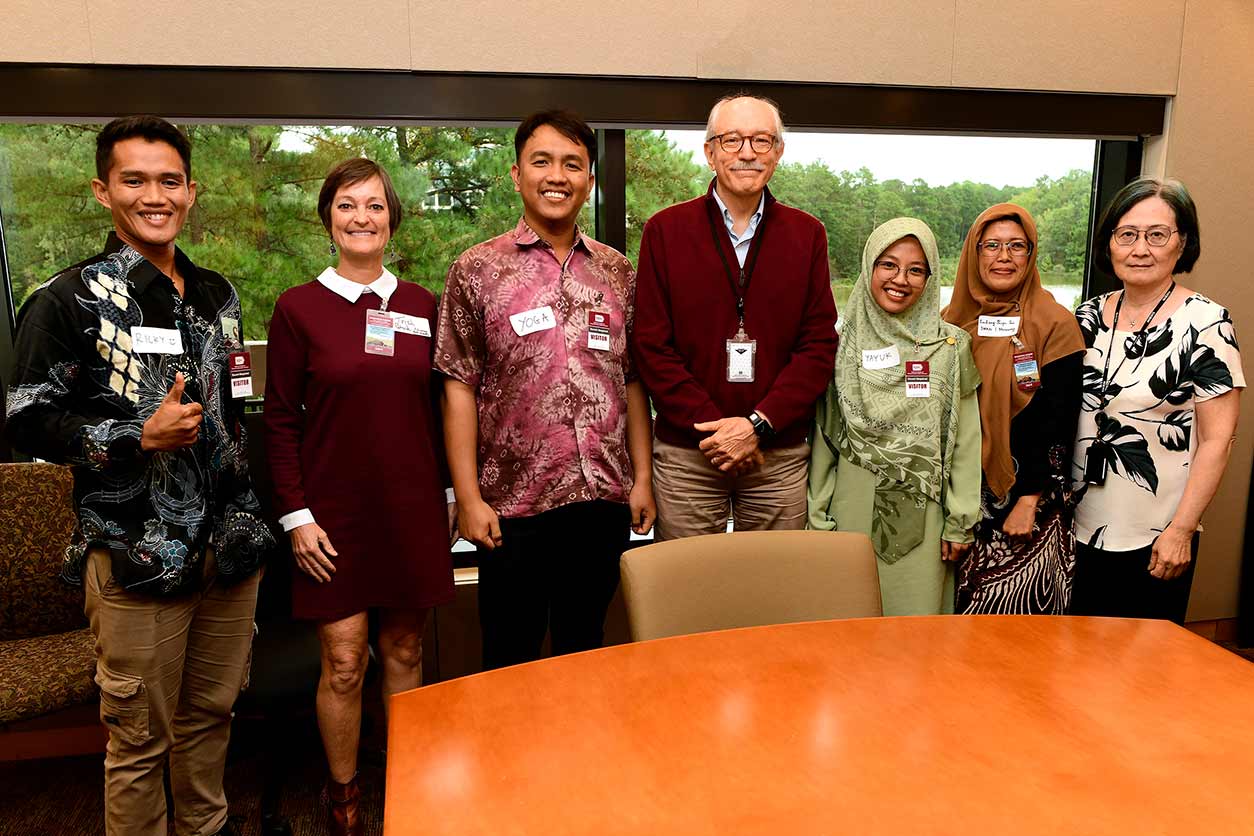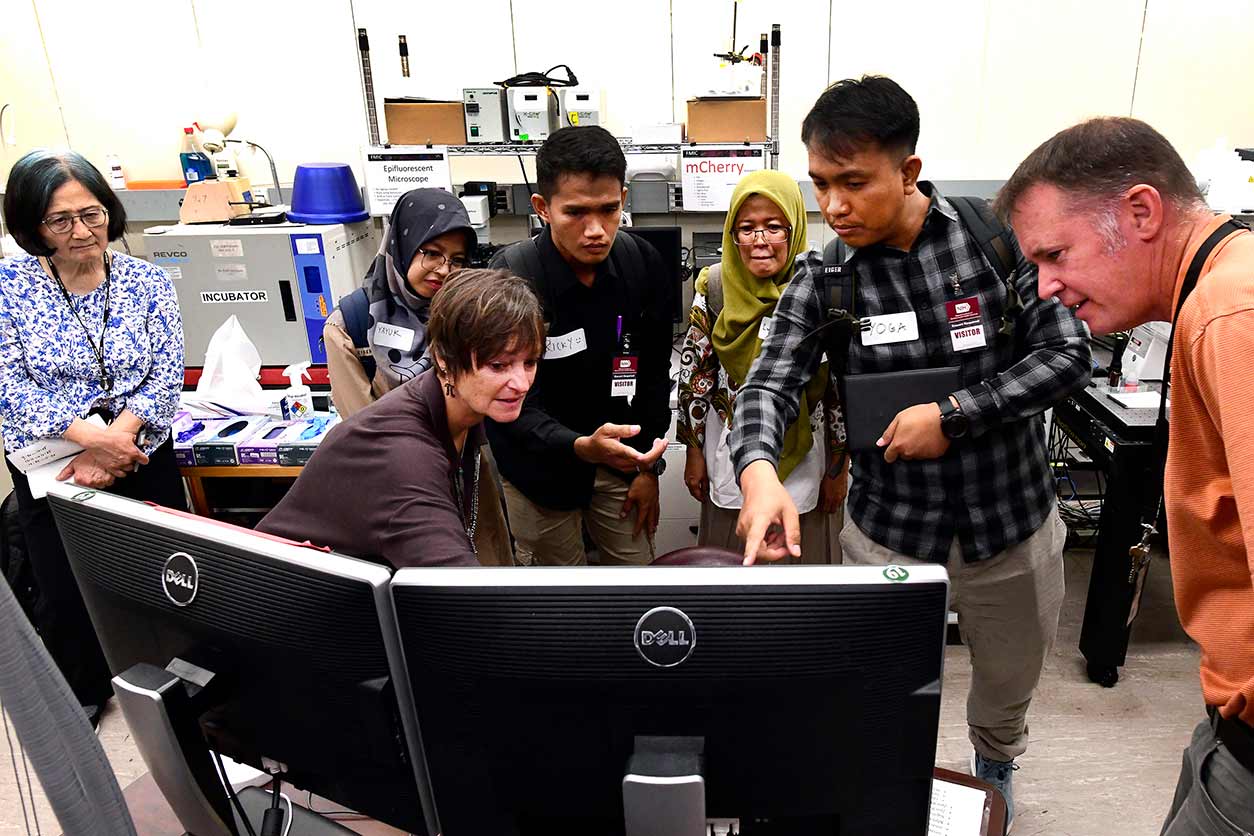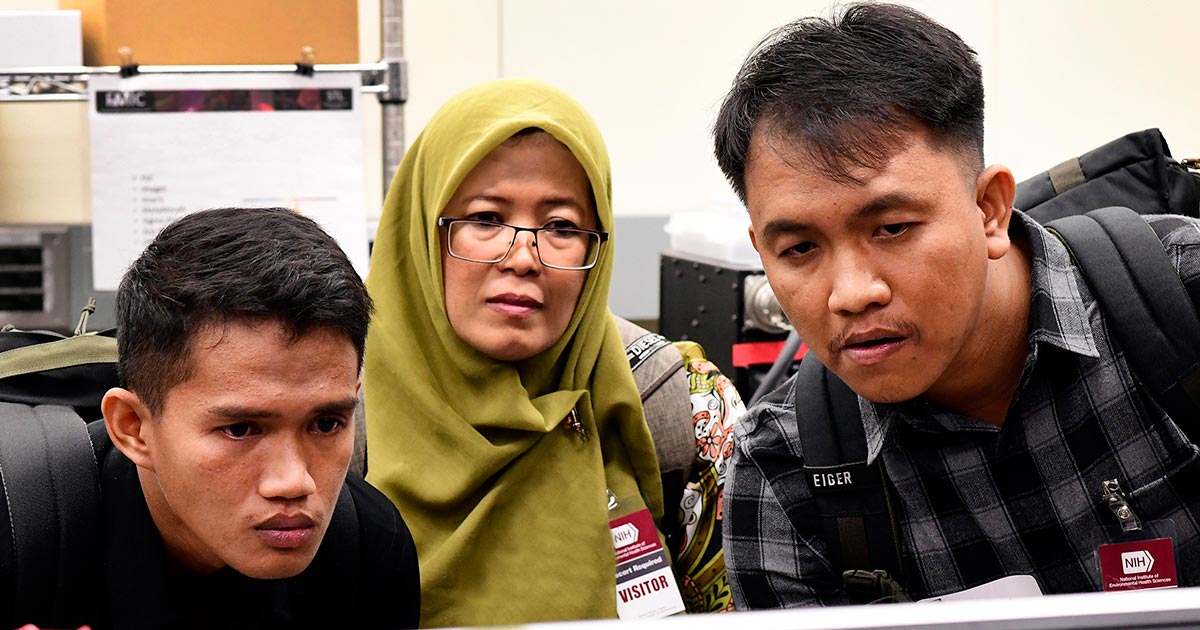Four high school teachers from Indonesia visited the NIEHS campus in September to observe and learn how to apply a problem-based learning (PBL) approach used by the institute’s environmental health scientists.
PBL is a teaching and learning method in which students learn by working on and solving complex real-world problems using the scientific method, as opposed to passively receiving facts and concepts from their teachers. PBL was first developed for medical education purposes and has since been brought into elementary through high school classrooms.
The visit allowed the teachers to observe research efforts underway at NIEHS, said Huei-Chen Lee, Ph.D., the Office of Science Education and Diversity K-12 science education program manager, who organized the visit.
“We hope this NIEHS experience provided teachers insights about engaging their students to define problems, effectively and efficiently identifying resources and tools, and following scientific methods to tackle problems in a culturally relevant manner,” Lee said.
For example, one potential PBL unit for these teachers would target the problem of Indonesian Indigenous healers’ skepticism toward COVID-19 vaccines and mistrust of doctors and hospital care. The goal would be to examine and understand local beliefs and health practices, and ultimately develop public health strategies and interventions. Students would lead the study with guidance from teachers, who serve as facilitators.
A diverse agenda
During their visit, biology teachers Yayuk Oktarina, Endang Puspa Sari, and Ariyoga Pratama, along with physics teacher Ricky Azrofi Samara, toured and met with members of the Fluorescence Microscopy and Imaging Center, the Nuclear Magnetic Resonance Group, and the Reproductive Developmental Biology Group. They also met with NIEHS Director Rick Woychik, Ph.D., and visited two local high schools, the Environmental Protection Agency offices in Research Triangle Park, North Carolina, and North Carolina A&T State University in Greensboro.

“It was my very first time seeing environmental health research,” said Pratama, who hopes to develop partnerships with research scientists when he returns to Indonesia. “The visit deepened my understanding of the environment and the power of collaboration between researchers and educators.”
Learning how to address environmental concerns, like air pollution or groundwater contamination, could motivate students to stay in school longer, said Pratama. He explained that the long-term benefits of education are often not the focus of students planning to work in Indonesia’s two largest industries: tin mining and palm oil production.

A network of connections
The teachers received funding for the visit from the U.S. Embassy for training in PBL. They connected with NIEHS through Fulbright Scholar Patricia Patrick, Ph.D., an education professor at Columbus State University who studied in Indonesia. She reached out to her network to see who might be able to provide the teachers with educational experiences in the U.S.
One of those people was Meg Blanchard, Ph.D., director of graduate programs at North Carolina State University. She, in turn, contacted Lee, an expert in PBL. When Lee saw the email, she immediately responded.
“I’m from a foreign country,” said Lee, who was born and raised in Taiwan. “I understand how important, how precious and rare these opportunities are for those teachers who have never been out of Indonesia.”
(Susan Cosier is a contract writer for the NIEHS Office of Communications and Public Liaison.)
Source link
factor.niehs.nih.gov

